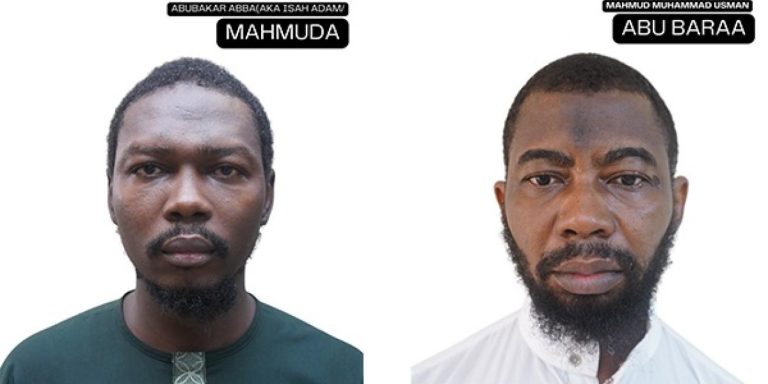The Federal Government has filed terrorism charges against two senior commanders of the extremist group, Ansaru, following their capture by operatives of the Department of State Services (DSS).
The suspects, identified as Abu Bara’a and Mahmuda, were arrested in a covert operation after years of surveillance and intelligence gathering. Both men are considered high-value targets within Ansaru’s hierarchy and are believed to have played key roles in planning and directing violent operations across parts of northern Nigeria.
According to reliable security sources, the government has pressed multiple charges under the Terrorism (Prevention and Prohibition) Act, including directing acts of terrorism, membership of a proscribed organization, financing terrorism, and conspiracy to commit terrorist acts.
Background on Ansaru
Ansaru, formally known as Jama’atu Ansarul Muslimina fi Biladis Sudan (translated as Vanguards for the Protection of Muslims in Black Africa), emerged in 2012 as a breakaway faction of Boko Haram. Unlike Boko Haram, which gained notoriety for mass killings and indiscriminate attacks, Ansaru positioned itself as a more “specialized” group focused on targeted assaults and kidnappings.
The group gained international attention for its involvement in high-profile abductions of foreign nationals, including engineers and aid workers, some of whom were later killed. It also orchestrated ambushes on Nigerian security convoys and carried out deadly raids on military and police installations.
Although Ansaru’s activities appeared to decline in recent years, intelligence agencies had warned of its attempt at resurgence under a new leadership structure. Security experts believe the capture of Abu Bara’a and Mahmuda could significantly weaken this effort.
Why this matters
The prosecution of the two commanders is viewed as a decisive step in Nigeria’s fight against terrorism. Analysts note that bringing top militant leaders to trial could serve both as deterrence and as a demonstration of the state’s commitment to dismantling terror networks.
A senior security official, who requested anonymity, described the arrests as “a major breakthrough.” He added, “These individuals were not foot soldiers; they were strategic planners within Ansaru. Their removal from the field will disrupt ongoing plots and help reduce coordinated attacks.”
Next steps
The case is expected to be heard at the Federal High Court in Abuja, with proceedings likely to attract national and international attention given Ansaru’s ties to global jihadist movements.
Human rights groups have already called for transparency in the trial, urging the government to balance national security with adherence to the rule of law. Meanwhile, security agencies are said to be intensifying efforts to track down other members of the group still at large.
Wider implications for Nigeria’s security
Nigeria has battled multiple security threats in recent years, ranging from Boko Haram and Islamic State West Africa Province (ISWAP) to armed banditry and kidnappings for ransom. Experts argue that successful prosecution of top terror leaders like Bara’a and Mahmuda could strengthen public confidence in the government’s counterterrorism strategies.
However, they also caution that militant groups often regenerate through new recruits, making it necessary for Nigeria to combine security operations with long-term measures such as deradicalization, community engagement, and improved socio-economic opportunities in vulnerable regions.
As the nation awaits the formal trial, the arrests of Abu Bara’a and Mahmuda mark one of the most significant blows against Ansaru in recent years, raising cautious optimism that Nigeria’s security agencies are gaining the upper hand in the fight against terrorism.


